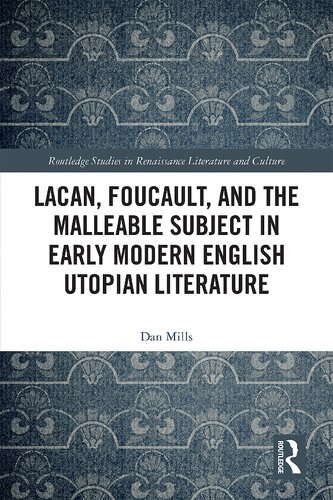

Most ebook files are in PDF format, so you can easily read them using various software such as Foxit Reader or directly on the Google Chrome browser.
Some ebook files are released by publishers in other formats such as .awz, .mobi, .epub, .fb2, etc. You may need to install specific software to read these formats on mobile/PC, such as Calibre.
Please read the tutorial at this link: https://ebookbell.com/faq
We offer FREE conversion to the popular formats you request; however, this may take some time. Therefore, right after payment, please email us, and we will try to provide the service as quickly as possible.
For some exceptional file formats or broken links (if any), please refrain from opening any disputes. Instead, email us first, and we will try to assist within a maximum of 6 hours.
EbookBell Team

5.0
60 reviewsTheoretically informed scholarship on early modern English utopian literature has largely focused on Marxist interpretation of these texts in an attempt to characterize them as proto- Marxist. The present volume instead focuses on subjectivity in early modern English utopian writing by using these texts as case studies to explore intersections of the thought of Jacques Lacan and Michel Foucault. Both Lacan and Foucault moved back and forth between structuralist and post-structuralist intellectual trends and ultimately both defy strict categorization into either camp. Although numerous studies have appeared that compare Lacan’s and Foucault’s thought, there have been relatively few applications of their thought together onto literature. By applying the thought of both theorists, who were not literary critics, to readings of early modern English utopian literature, this study will, on the one hand, describe the formation of utopian subjectivity that is both psychoanalytically (Oedipal and pre-Oedipal) and socially constructed, and, on the other hand, demonstrate new ways in which the thought of Lacan and Foucault inform and complement each other when applied to literary texts. The utopian subject is a malleable subject, a subject whose linguistic, psychoanalytical subjectivity determines the extent to which environmental and social factors manifest in an identity that moves among Lacan’s Symbolic, Imaginary, and Real.